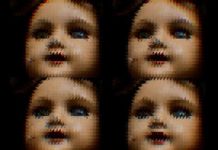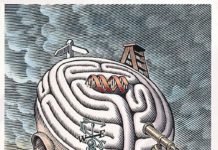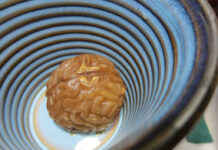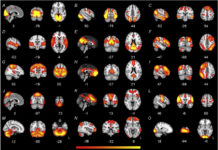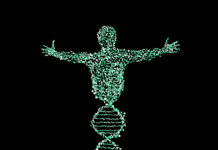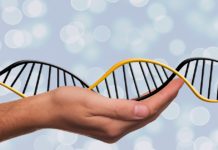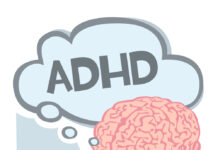The Trouble with Twin Studies
As most readers are aware, it is widely believed that both within and without of psychiatry genetic factors play an important role in causing major psychiatric disorders such as schizophrenia, bipolar disorder, major depression, ADHD, autism, anxiety, and even post-traumatic stress disorder (PTSD). Twin studies provide the main pillar of support for this belief which is often, though mistakenly, presented as a scientific fact.
Hereditary Madness? The Genain Sisters’ Tragic Story
The story of the Genain quadruplets has long been cited as evidence proving something about the supposed hereditary nature of schizophrenia. But who wouldn’t fall apart after surviving a childhood like theirs? The doctors attributed their problems to menstrual difficulties or excessive masturbation — anything except abuse.
ADHD Diagnosis Based on “Illogical Rhetoric,” Analysis Claims
In a philosophically rigorous article, Spanish researcher Marino Pérez-Álvarez examines the logic of attention-deficit hyperactivity disorder (ADHD).
Mental Health Concerns Not “Brain Disorders,” Say Researchers
The latest issue of the journal Behavioral and Brain Sciences features several prominent researchers arguing that mental health concerns are not “brain disorders.”
Bipolar Diagnosis Linked to Childhood Adversity
With the ties between traumatic childhood experiences and mental health issues, should we continue to focus on biological approaches?
Studies of Reared-Apart (Separated) Twins: Facts and Fallacies
Twin studies supply the most frequently cited evidence in favor of important genetic influences on human behavioral differences. In an extremely small yet influential handful of studies, twin pairs were said to have been reared apart in different families. Twin researchers and others view this occurrence as the ultimate test of the relative influences of nature (genes) and nurture (environment). According to this view all behavioral resemblance between reared-apart MZ twin pairs (known as “MZA” pairs) must be the result of their 100% genetic similarity, because such pairs share no environmental similarity. But, far from being separated at birth and reared apart in randomly selected homes representing the full range of potential behavior-influencing environments, and meeting each other for the first time when studied, most MZA pairs were only partially reared apart, and grew up in similar cultural and socioeconomic environments at the same time.
Bad-Science Warning: The “Minnesota Study of Twins Reared Apart” (MISTRA)
The huge impact of the MISTRA, in addition to the harmful and regressive social and political policy implications that flow from it, necessitates a detailed analysis of the “science” behind the study’s major claims and conclusions. Here I offer a new critique of this famous and influential “separated twin study.”
The Scientism of Autism
Autism is now simply assumed to represent a real, tangible, identifiable ‘thing.’ But no one is asking the obvious question: On what evidential basis can you conclude that autism represents a natural category that can be differentiated from other natural categories? According to the real science, autism should be seen as a fact of culture, not a fact of nature.
Mental Health Professionals Critique the Biomedical Model of Psychological Problems
While a great deal of the excitement about advances in psychological treatments comes from the potential for research in neuroscience to unlock the secrets of the brain, many mental health experts would like to temper this enthusiasm. A special issue of the Behavior Therapist released this month calls into question the predominant conception of mental illnesses as brain disorders.
Brain Scans Cannot Differentiate Between Mental Health Conditions
A new study analyzing over 21,000 participants found that differences in activation of brain regions in different psychological “disorders” may have been overestimated, and confirms that there is still no brain scan capable of diagnosing a mental health concern.
Schizophrenia and Genetics: A Closer Look at the Evidence
“The substantial hereditary component in schizophrenia,” a pair of researchers wrote in 1993, “is surely one of the two or three best-established facts in psychiatry.” But is it really? For mainstream psychiatry and psychiatric genetics, schizophrenia is “a severe mental disorder with a lifetime risk of about 1%, characterized by hallucinations, delusions and cognitive deficits, with heritability estimated at up to 80%,” or a “highly heritable neuropsychiatric disorder of complex genetic etiology.” Many commentators have challenged these claims, and some have challenged the concept of schizophrenia itself.
Schizophrenia Genetic Research – Running on Empty
The time has come to halt the massive failure that has characterized schizophrenia molecular genetic research, and to thoroughly reassess what critics have always said are the severely flawed family, twin, and adoption studies that inspired and helped justify this research.
Brain Disease or Existential Crisis?
As the schizophrenia/psychosis recovery research continues to emerge, we discover increasing evidence that psychosis is not caused by a disease of the brain, but...
No Brain Connectivity Differences Between Autism, ADHD, and “Typical Development”
Neuroscience researchers find no differences in brain connectivity between children with diagnoses of autism, ADHD, and those with no diagnoses.
Mental Health Professionals and Patients Often Disagree on Causes of Symptoms
A new study finds that clinicians’ disregard for mental health patients’ insight into their own condition may be detrimental to treatment.
Researchers Question Link Between Genetics and Depression
A new study, published in the journal Molecular Psychiatry, found no link between genetics and the occurrence of depressive symptoms.
Philosophers Challenge Psychiatry and its Search for Mechanisms of Disorder
Attempting to locate the mechanisms of psychiatric disorder is a step in the wrong direction and fails to challenge potentially unjust social practices.
The Science and Pseudoscience of Women’s Mental Health: Conversation with Kelly Brogan
A conversation with Dr. Kelly Brogan, a leading voice in natural approaches to women’s mental health. With degrees from MIT and Weil Cornell Medical College, triple board certification in psychiatry, psychosomatic medicine and integrative holistic medicine, Dr. Brogan is uniquely qualified to challenge the pseudoscience of the chemical imbalance theory and the drug regimens that it spawned.
It is Time to Abandon the Candidate-Gene Approach to Depression
The candidate-gene approach to depression goes unsupported and is likely based on bad science, new research finds.
Five Decades of Gene Finding Failures in Psychiatry
Two generations of molecular genetic researchers have attempted, yet failed, to discover the genes that they believe underlie the major psychiatric disorders. The most recent failure is a molecular genetic study that was unable to find genes for symptoms of depression. Like most genetic researchers in psychiatry, the authors failed to consider the possibility that no such genes exist.
Lancet Psychiatry’s Controversial ADHD Study: Errors, Criticism, and Responses
Amid calls for a retraction, Lancet Psychiatry publishes articles criticizing the original finding and a response from the authors.
Western ‘Depression’ is Not Universal
Derek Summerfield, consultant psychiatrist at South London and Maudsley National Health Service Foundation Trust, challenges the assumption that Western depression is a universal condition.
A Biopsychosocial Model Beyond the Mind-Body Split
Can a renewed biopsychosocial approach, grounded in an updated philosophy, foster person-centered medicine, and psychiatry?
The Genetics of Schizophrenia: A Left Brain Theory about a Right Brain Deficit in...
In recent months, two teams of researchers in the UK and the US published complementary findings about the epigenetic origins of schizophrenia that have scientific communities who indulge in ‘genetic conspiracy theories’ abuzz. While these results are intriguing, and no doubt involve pathbreaking research methodologies, this line of thought represents a decontextualized understanding both of the symptoms that are typically associated with schizophrenia, and their causes.
We Still Buy the Lie That Chemical Imbalances Cause Depression
From Quartz: Despite its inaccuracy, the chemical imbalance theory of mental illness continues to persist in public consciousness. The prevalence of this myth may be...


